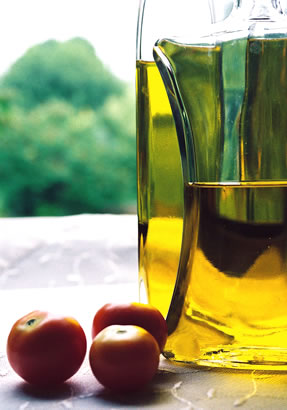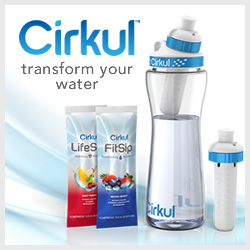 Using the right fats for cooking is important for your health, but using them the right way is just as important. Afterall, you do not want to turn “good fats” into “bad fats” simply by using them the wrong way.
Using the right fats for cooking is important for your health, but using them the right way is just as important. Afterall, you do not want to turn “good fats” into “bad fats” simply by using them the wrong way.
Below is a simple chart with the different oils and what you can use them for, this is for quick and easy reference in the future. Underneath this chart is a more “in-depth” listing which explains more about the oils and why they should only be used in certain ways. Please do not skip over this, read the explanations at least once so you understand the reasoning behind it that you may choose the right oils for the right cooking job to help keep you and your family healthy.
Healthy Oils Quick Reference Chart
| High-Heat | Medium Heat | Baking | No Heat Oils |
| Coconut Oil | Sesame Oil | Butter | Flax Oil |
| Palm Oil / Shortening | Extra-Virgin Olive Oil | Coconut Oil | Hemp Oil |
| Grapeseed Oil | Coconut Oil | ||
| Avocado Oil | Butter |
![]()
More In-depth Information on How to Cook with “Good Fats” the Right Way
High Heat: Virgin Coconut Oil is the best oil for high temperatures, it can take temps up to 350F so it is great for frying. Grapeseed Oil is another high-heat oil, but use in moderation as it is very high in omega 6. For good health, our diets should consist of a 2:1 ratio of omega 6 to omega 3. When choosing an avocado oil look for unrefined varieties for the best taste and health benefits.
Medium Heat: Sesame oil (another omega 6 fat, though not as high as grapeseed oil, so still use in moderation), extra-virgin olive oil, coconut oil, and butter are all great at medium heat and work well for sauteing. (Note: do not allow olive oil to smoke, it will turn rancid when heated too high. So if it smokes, it has already turned rancid.)
Baking: The best oils for baking are coconut oil and butter. If baking at temps below 325F, you may use extra-virgin olive oil. If you are coating a pan or baking sheet, it is best to use only coconut oil.
No Heat Oils: Flax Oil and Hemp Seed Oil are great for you, but should not be heated. Only added to food after it has been cooked. For example, drizzle over a salad to get a boost of healthy omega 3’s. Remember to keep these oils in the refrigerator.




What are your thoughts on meat fats such as bacon grease to use in greasing the pan for eggs and toast? Healthy or no?
Personally I don’t use pork or pork fat as these meats are often contaminated and they do change the blood when consumed. Beef, chicken and fish fats are okay.
What about virgin palm oil shortening for greasing pans for baking?
Virgin Palm Shortening would be another option for greasing baking pans. So if you have it, go for it 🙂
I just prefer virgin coconut oil because I like it, and I always have it in the pantry. We use coconut oil in alot of things, since it is such an amazingly healthy fat.
Note: If anyone is interested to learn more about coconut oils’ great qualities, check out Eat Fat, Lose Fat by Mary Enig and Sally Fallon…it is a great book.